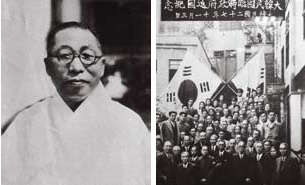South Korean culture and society
Religion
and Belief, South Korea supports religious freedom.
Confucianism, Buddhism and Christianity are the main formal religions. Many
Koreans believe in ancestral spirits and observe rituals. Confucianism is a
social and political philosophy that surrounds Korean culture.
Big
Celebrations, There are two main national holidays
in Korea, namely New Year's Day (the second full moon after the winter
solstice) and Chuseok (the eighth full moon). Celebrations for this festival
are celebrated around the ancestors, and families.
Family,
Family is an integral part of habits and life in South Korea. Arranged
marriages are common. Marriage is considered a transitional ritual. Divorce is
rare but has become more common in recent years. Ancestry exist everywhere.
Traditionally, the eldest son inherits all of the family's assets. But it was
recently changed and is now on par with women. The eldest son bears extra
responsibility for his family and he will take care of his parents in their old
age.
Culinary,
Korean cuisine is based on rice, vegetables, and meat. 'Kimchi' is a national
dish. Kimchi is made from various vegetables which are then fermented and can
be stored for a long time. Banchan is a side dish. Banchan is often made in large
quantities and served along with main dishes. In addition to daily consumption,
food is also used in ceremonies, especially at weddings, birthdays, and to
honor ancestors.
Social
and ethical concepts in South Korea
The
concept of Kibun, Kibun is a word without a literal
English translation. The closest term is pride, face, mood, feeling, or state
of mind. If you hurt someone's kibun, then you hurt their pride, causing them
to lose dignity, and shame. Korean interpersonal relations operate on the principle
of harmony. It is important to maintain a peaceful and comfortable atmosphere
at all times, even if it means "lying for good".
It is important to know how to assess the state of
other people's kibun, and how to take care of your own kibun at the same time.
In business, a manager's kibun will be damaged if his subordinates do not show
proper respect. Subordinate kibun will be damaged if his manager publicly
criticizes him. Nunchi is the ability to determine the kibun of another person
by using the eyes. Because this is a culture where social harmony is very
important, being able to judge the state of mind of others is very important to
maintain one's kibun. Nunchi is achieved by looking at body language and
listening to tone of voice and what is said.
Giving
a name, In South Korea the name position is the opposite
of Western culture. Surname as first name and real name as last name. It is
considered very rude to greet a Korean person directly with his real name.
Calling them must use frills like Mr, Mrs or by using their professional
position, etc.
The photo used in this article was taken from the site
www.flickr.com this photo belongs to the Ministry of Culture, Sports and
Tourism Korean Culture and Information Service. Photographer : Jeon Han







Komentar
Posting Komentar